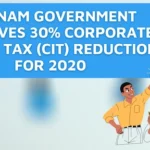Transfer Pricing Regulations in Vietnam
In Vietnam, transfer pricing regulations are crucial for ensuring fair and transparent business practices. At Jobinvietnam.net, we understand the importance of staying informed about these regulations, especially for foreign companies operating in Vietnam. Let’s dive into the key aspects of transfer pricing regulations in this vibrant country.

Understanding Transfer Pricing
Transfer pricing refers to the prices charged for goods, services, or intangible assets between related parties, such as parent companies and their subsidiaries. These transactions must adhere to the arm’s length principle, meaning they should be priced as if they were between unrelated parties in the open market.
Vietnam follows the Organization for Economic Cooperation and Development (OECD) Transfer Pricing Guidelines, which provide a framework for determining arm’s length prices. The country’s transfer pricing regulations are primarily governed by the following legal documents:
- Decree No. 20/2017/ND-CP
- Circular No. 41/2017/TT-BTC
- Decree No. 132/2020/ND-CP
Documentation Requirements
To ensure compliance with transfer pricing regulations, companies in Vietnam must prepare and maintain a comprehensive set of documentation, including:

- Local file: Detailed information about the company’s related party transactions, including a description of the transactions, pricing methods used, and comparability analysis.
- Master file: An overview of the multinational group’s global business operations, transfer pricing policies, and the allocation of income and economic activities.
- Country-by-country report: Required for multinational groups with total consolidated revenue of at least VND 18,000 billion (approximately USD 750 million) in the fiscal year, providing an overview of the group’s global allocation of income, taxes paid, and economic activities.
Transfer Pricing Methods
Vietnam recognizes the following transfer pricing methods, in line with the OECD guidelines:
| Method | Description |
| Comparable Uncontrolled Price (CUP) | Compares the price charged for goods or services in a controlled transaction to the price charged in an uncontrolled transaction under comparable circumstances. |
| Resale Price Method (RPM) | Determines the arm’s length price by subtracting an appropriate gross margin from the resale price of goods or services. |
| Cost Plus Method (CPM) | Adds an appropriate mark-up to the costs incurred by the supplier of goods or services in a controlled transaction. |
| Transactional Net Margin Method (TNMM) | Examines the net profit margin relative to an appropriate base (e.g., costs, sales, or assets) realized from a controlled transaction. |
| Profit Split Method (PSM) | Allocates the combined profits or losses from controlled transactions based on the relative contributions of each party. |
Companies should select the most appropriate method based on the nature of the transaction and the availability of reliable data.
Recent Developments and Challenges
In recent years, Vietnam has taken steps to strengthen its transfer pricing framework and align with international best practices. The introduction of Decree No. 132/2020/ND-CP in December 2020 brought several notable changes, including:

- Expanding the scope of related party transactions subject to transfer pricing regulations
- Introducing a three-tiered transfer pricing documentation approach (local file, master file, and country-by-country report)
- Providing guidance on the application of the arm’s length principle and transfer pricing methods
Despite these developments, companies may face challenges in complying with transfer pricing regulations in Vietnam, such as:
- Limited availability of reliable comparable data
- Inconsistencies in the interpretation and application of regulations by tax authorities
- Potential for disputes and lengthy audit processes
To navigate these challenges, it is essential for companies to stay proactive, maintain robust documentation, and seek professional advice when needed.
Conclusion
Transfer pricing regulations in Vietnam are constantly evolving to keep pace with the country’s growing economy and international best practices. By understanding the key aspects of these regulations, foreign companies can ensure compliance, mitigate risks, and contribute to a fair and transparent business environment.
Recent Tax Reforms and Their Impact on Individuals and Businesses in Vietnam
In addition to transfer pricing regulations, Vietnam has recently implemented several tax reforms that have significant implications for individuals and businesses. These reforms aim to streamline the tax system, promote economic growth, and enhance the country’s competitiveness in the global market.
One notable reform is the reduction of corporate income tax rates for small and medium-sized enterprises (SMEs). This move is expected to stimulate investment, encourage entrepreneurship, and create more job opportunities. Additionally, the government has introduced new tax incentives for businesses investing in priority sectors, such as high-tech industries, renewable energy, and agriculture.
For individuals, recent tax reforms have focused on simplifying the personal income tax system and providing relief to low-income earners. The government has raised the tax-exempt threshold and adjusted the progressive tax rates to ensure a more equitable distribution of the tax burden.
As Vietnam continues to refine its tax policies, it is crucial for individuals and businesses to stay informed about these changes and their potential impact. For more information on recent tax reforms and their implications, read our in-depth article: Recent Tax Reforms and Their Impact on Individuals and Businesses in Vietnam.
At Jobinvietnam.net, we are committed to providing the most up-to-date and relevant information for foreigners seeking employment opportunities in Vietnam. If you have any questions or need assistance navigating the complex landscape of transfer pricing regulations or tax reforms, please don’t hesitate to contact us via phone, Zalo, or WhatsApp. Our team of experts is here to provide you with the clearest and most detailed advice to help you succeed in Vietnam’s dynamic business environment.


